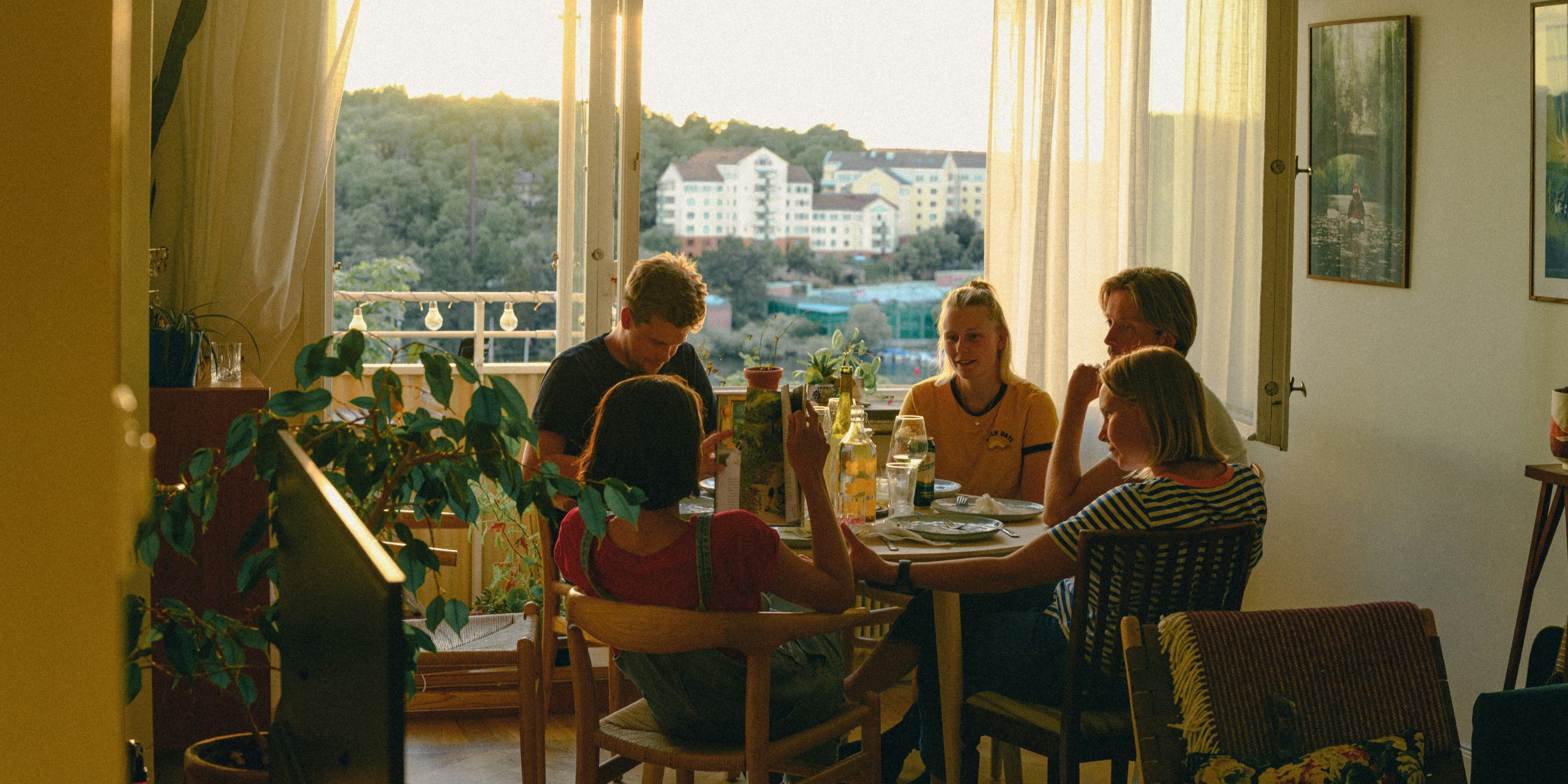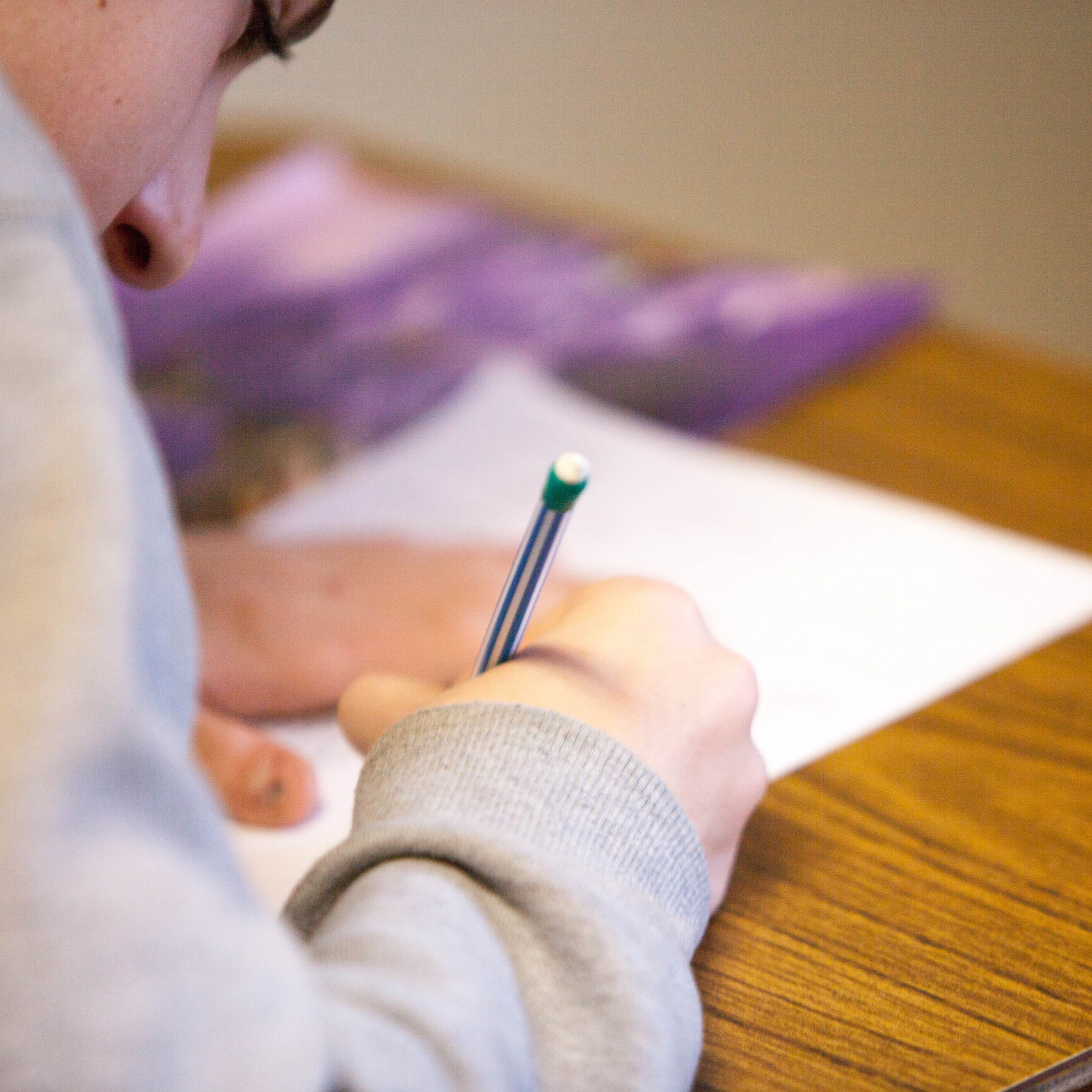Choosing Freedom: Overcoming My Eating Disorder at University
Content warning: This article includes first-hand descriptions of Anorexia and disordered eating.
My friends and I squeezed into the confines of the dining-room-cum-living-room of my studio flat. Three of us were knee-to-knee on the double sofa, the other two on the floor, all of us with plates balanced precariously on our laps. Surrounding us were dishes filled to the brim with the feast we’d made for ourselves; chunks of crispy tofu in a sticky sesame glaze; a mountain of spicy egg-fried rice, jewelled with garden peas; heaps of tender stem broccoli, baby corn, and mangetout, all sauteed in garlic and ginger.
As everyone loaded their plates with oversized serving spoons, I was overcome by the absence of panic in my chest. Gone was a feeling I’d come to know so well: a festering blight which seemed to hijack my brain whenever I sat down to eat. An inner voice told me that food should be controlled, that everyone would like me so much more if I was smaller, thinner, if I looked like the influencers who dominated my Instagram feed. The disordered thoughts which had once ruled my life were suddenly much quieter, muffled by the senseless chatter of my closest friends and the clattering of knives and forks.
It was one of the first times that full eating disorder recovery felt possible. One day, I could be free from the illness which plagued my student years.
In September 2020, I moved 170 miles from home into student accommodation. I was facing the same conundrum as every other 18-year-old across the country; I needed to reinvent myself.
Freshers’ week at university is a free-for-all. Not to mention that mine was taking place during a global pandemic. It seemed like everyone was overcome with some animalistic urge to belong to a pack. I struggled to form a social circle, and it wasn’t long before I began to internalise it. I’d spend evenings going over every interaction I’d had, convincing myself that there was something wrong with me. Detached from my support system and falling into a spiral of self-doubt, I’d unknowingly found myself in the perfect conditions for an eating disorder to grow and mutate.
Somewhere amongst the anxiety and pressure that came from starting a new life, my value became inextricably tied up with my appearance. For the first time ever, I was wholly responsible for everything I ate. I compared my diet and exercise habits to those of my flatmates with borderline military precision. While other students were debating which societies to join, I was concocting increasingly harmful ways to morph my body into my personal ideal. Time slogged by in a haze of calorie and step counting. Meanwhile, lecture content and thoughts of food battled it out for prevalence in my mind, the latter almost always arising victorious.
Among university students, between 10 and 20% of women, and 4 to 10% of men suffer from an eating disorder, an ever-rising trend. With the onset of eating disorders most commonly occurring between the ages of 18 and 21, these behaviours tend to rear their head during the student years, often encouraged or exacerbated by the pressure of moving away from home for the first time.
Dr Douglas Bunnell, PhD, a specialist in the treatment of eating disorders, explains the link between university life and disordered eating: “The stress of a college schedule, managing a new social context, and dealing with independent living can trigger re-emergent anxiety or, in some cases a new mental illness […] If you have a heady dose of anxiety and you’re in a social environment, and you’re constantly exposed to the thin body ideal, that’s a perfect storm convergence of factors that can drive a vulnerable individual into an eating disorder.”
I was fortunate that my family and friends recognised the change in me and gave me the support I needed to ask for help. With the aid of therapy, I began to see my eating disorder for what it was: an illusion of control I had manufactured when I needed it most. In the thick of it, my eating disorder made me believe that I was in the driver’s seat of my life, cruising safely towards the rewards of a perfect body. In reality, I was the subject of a balancing act, dangerously spinning a set of empty plates, waiting for everything to come crashing down.
Now, for the first time in a long time, food is just food. But it is also so much more than that. It fuels my brain to withstand three-hour-long lectures, it powers my body throughout a workout class, it feeds my creativity so that I can write, and paint, and make music. The best thing to come of it though, are the evenings spent cooking with friends, cramming trays of food into a too-small oven, and adding an unholy amount of garlic to everything.



